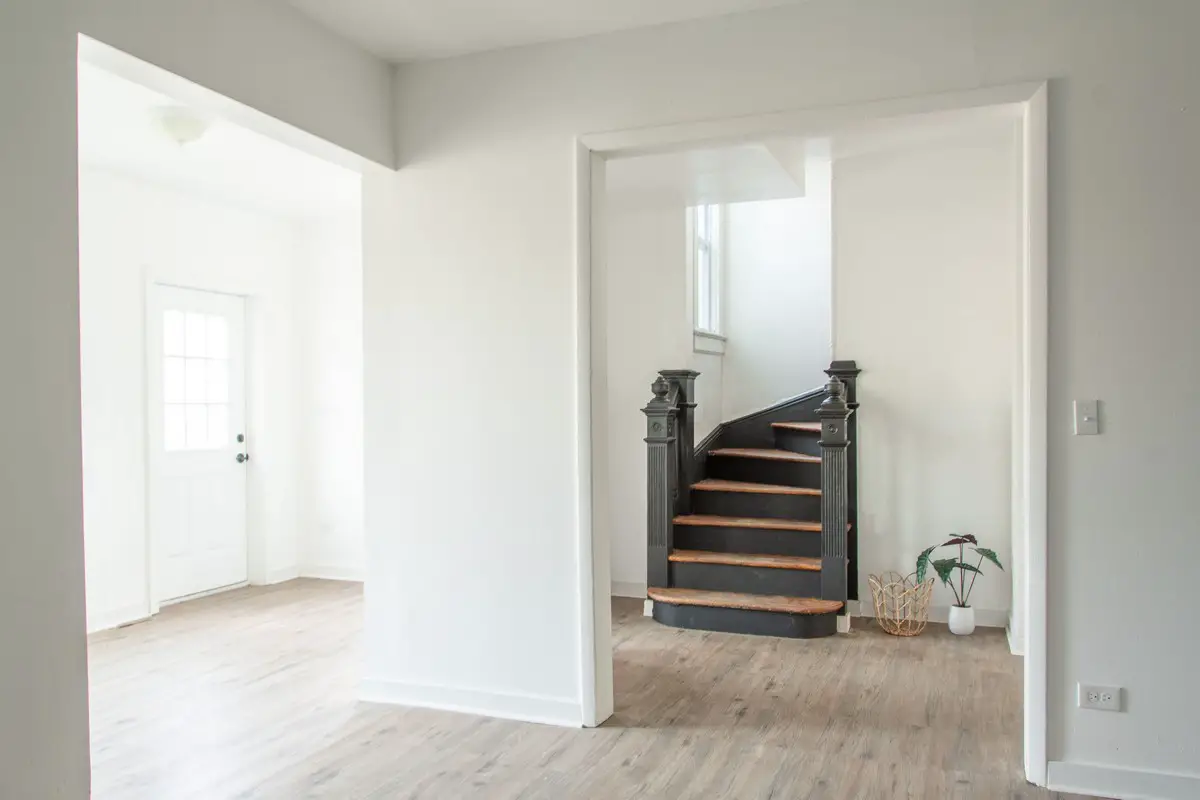House renovation in London costs guide
House Renovation in London: A Comprehensive Guide to Costs and Finding the Right Company
6 October 2023
House renovation is more than just a home improvement project; it’s an investment in your property and reflects your style. In bustling cities like London, where space is at a premium, renovating can be the key to creating your dream home without the need to relocate.
London House Renovation: A Cost Overview
Renovating a house, especially in a city like London, comes with unique challenges and costs. Factors such as property age, location, and the extent of the renovation significantly determine the overall expense.
- General Costs: The average cost of a house renovation can vary widely based on the scope of work. Simple cosmetic changes will be considerably less expensive than structural alterations.
- Specific Costs in London: London, a prime location, often has higher renovation costs. On average, renovating a house in London can range from £1,500 to £2,500 per square meter.
- Budget Considerations: While £50K might seem substantial, in the context of a complete house renovation in the UK, especially in London, it might only cover fundamental changes. On the other hand, with a budget of £20K, one might need to prioritize certain areas of the house or opt for more budget-friendly solutions.
Creating a Comprehensive Renovation Estimate
A renovation project, while exciting, is also a significant financial undertaking. Proper planning and a comprehensive cost estimate can differ between a smooth, on-budget renovation and one riddled with unexpected expenses and stress. Here’s a deeper dive into creating a detailed renovation estimate:
Writing a Cost Estimate
- Materials: This is often the most apparent cost. From bricks to paint, every material has a price. Deciding whether to opt for premium, mid-range, or budget materials is essential. Each choice has pros and cons regarding durability, aesthetics, and cost.
- Labour: The cost of labour can vary based on the workers’ expertise, the job’s complexity, and the location. For instance, labour costs in London might be higher than in other parts of the UK.
- Specialized Services: Some renovations might require specialised services like structural engineers, architects, or interior designers. These professionals bring expertise but also additional costs.
- Licenses and Permits: Various permits might be required depending on the extent of the renovation and local regulations. These have associated fees and can impact the overall budget.
- Contingency: No matter how well you plan, unforeseen challenges can arise. Setting aside a contingency budget, typically 10-20% of the total estimated cost, is always wise to cover unexpected expenses.
Factors Influencing the Cost
- Seasonality: The time of year can impact costs. For instance, renovating during peak construction season might be more expensive due to the higher demand for materials and labour.
- Property Location: A property located in a bustling city centre might have logistical challenges, driving up costs. Conversely, a remote location might increase transportation costs.
- Property Age: Older properties might have hidden challenges like outdated wiring, plumbing, or structural issues. Addressing these can add to the renovation cost.
- Complexity of the Renovation: A simple cosmetic renovation will be less expensive than a complete structural overhaul. The more complex the project, the higher the potential costs.
- Quality vs. Budget Decisions: Opting for high-quality materials and services can lead to a more extended-lasting and aesthetically pleasing result but will come with a higher price tag. On the other hand, budget solutions might be more cost-effective in the short term but not offer the same durability or finish.
Researching Costs
- Online Research: Various UK renovation websites provide ballpark figures for different renovation projects. While these can give a general idea, it’s essential to remember that every renovation is unique.
- Multiple Quotes: Getting multiple quotes from different service providers is advisable. This gives a range of potential costs and allows homeowners to gauge the market rate for specific services.
- Material Procurement: Some companies might offer to procure materials on behalf of the homeowner. While this can be convenient, it’s essential to ensure cost transparency. Sometimes, sourcing materials independently can lead to savings.
Navigating the Legal and Regulatory Landscape of Renovations
Embarking on a renovation or extension project isn’t just about design and construction. Understanding the legal and regulatory framework surrounding such projects is equally crucial, ensuring that your renovation is compliant and avoids potential legal pitfalls.
Understanding Planning Permissions
Before starting any significant renovation or extension, it’s essential to determine if you need planning permission. Minor renovations might not require permission in many cases, but more extensive projects, especially those that change the building’s footprint or height, often do.
- Permitted Development Rights: Some projects fall under Permitted Development Rights, which means they don’t require formal planning permission. However, getting a Lawful Development Certificate is always wise to prove that your project complies.
- Conservation Areas: If your property is in a conservation area, additional restrictions might apply, even for minor renovations.
- Listed Buildings: Renovating a listed building comes with its challenges. Almost all changes to such properties require consent to preserve the building’s historical and architectural significance.
Building Regulations Approval
Apart from planning permissions, most renovation projects must comply with building regulations. These ensure that the work is safe, energy-efficient, and accessible.
- Complete Plans: This method involves submitting detailed plans to the local authority before starting work. It’s a more time-consuming approach but offers peace of mind as you get approval before commencing.
- Building Notice: A quicker method where you notify the local authority of your intentions. It’s faster but carries more risk as work is checked during or after completion, leading to potential changes if non-compliant.
Party Wall Act:
If your renovation involves work on a wall shared with a neighbour, you must comply with the Party Wall Act. This involves notifying your neighbour of your intentions and getting their agreement.
Hiring a Building Company vs. Freelance Contractor: Weighing the Pros and Cons
When executing your renovation vision, choosing who to hire is paramount. Do you opt for a reputed building company or a freelance contractor? Both have their merits and challenges.
Whichever route you choose, it’s also worth consulting with experienced building services consultants to ensure that all mechanical, electrical, and plumbing elements are properly planned and integrated into your renovation from the start. This can help avoid costly issues later on and keep your project running smoothly.
.
The Case for Building Companies
- Comprehensive Services: Companies like Fittra offer end-to-end services, from design consultations to post-completion checks. This holistic approach ensures consistency and quality.
- Accountability: Established companies have a reputation to uphold. They often guarantee their work, ensuring peace of mind for homeowners.
- Insurance and Licenses: Reputed companies are insured, protecting homeowners from potential liabilities. They also possess the necessary licenses and certifications, ensuring all work is up to code.
The Freelance Contractor Perspective
- Potential Cost Savings: Hiring a freelance contractor might seem cost-effective initially. Without the overheads of a larger company, they might offer competitive rates.
- Flexibility: Freelancers might offer more flexibility in terms of timings and customization. They might be more willing to adapt to changes mid-project.
- Risks and Challenges: Hiring a freelancer comes with its set of risks. They might not have comprehensive insurance, leading to potential liabilities for homeowners. There’s also a risk of inconsistent quality, delays, and potential disputes.
Documentation and Guarantees
Regardless of who you hire, having a detailed written contract is essential. This should outline the scope of work, costs, timelines, and other crucial details. Additionally, always ask for receipts for all payments made. If a company or contractor offers guarantees on their work, get them in writing.
The Importance of Choosing the Right Renovation Company
Embarking on a house renovation is a significant decision – the company you partner with can make or break the experience. The right company can transform your vision into reality, while the wrong one can lead to delays, increased costs, and subpar work.
Role of Renovation Companies: Beyond the brick and mortar, a reputable renovation company offers invaluable insights innovative design ideas, and ensures that all work is up to code and complies with local regulations. They guide homeowners through the complexities of the renovation process, ensuring a smooth transition from the initial concept to the final product.
Local Expertise: London’s unique blend of historic and modern architecture presents its challenges. Searching for terms like “construction builders near me” or “building house companies” can yield a list of companies. However, ensuring they have experience and familiarity with local regulations, suppliers, and the specific challenges of renovating in the area is essential.
Finding the Right Company
- Online Searches: Google and other search engines are the go-to for many when starting their search. While they can provide many options, it’s essential to delve deeper into reviews, company websites, and past projects.
- Business Directories: Websites like Checkatrade or MyBuilder list tradespeople and include reviews from previous clients. These can be a goldmine of information but always cross-reference with other sources.
- Word of Mouth: Recommendations from friends, family, or colleagues can be invaluable. They offer an honest insight into a company’s reliability, quality of work, and professionalism.
- Local Advertisements: While walking around your locality, you might see banners or boards advertising renovation services. While these can be a starting point, always conduct thorough research before deciding.
Risks and Precautions
- Too Good to Be True: Beware of quotes significantly lower than others. This could indicate subpar materials, inexperienced labour, or potential hidden costs.
- Check Credentials: Ensure the company is registered, insured, and has the necessary operating licenses.
- Visit Past Projects: If possible, visit some of the company’s completed projects or speak with previous clients. This provides a tangible sense of their work quality and style.
- Written Agreements: Always have a detailed written contract that outlines the scope of work, costs, timelines, and other essential details. This can prevent potential disputes down the line.
While building companies and freelance contractors have their merits, the scale often tips in favour of established companies, especially for significant projects. Their experience, comprehensive services, and accountability make them a safer bet. Companies like Fittra, with their proven track record and commitment to quality, stand out as reliable choices for homeowners looking for a seamless renovation experience.
Comments on this guide to House renovation in London costs article are welcome.
Sustainable Building Design
Sustainability Posts
Teaching your family how to save energy

How to Design an Energy Efficient Building
How to Make a Home more Eco-friendly
Can you have a net-zero house?
Property Design
Contemporary Property Designs – recent architectural selection:
Comments / photos for the House Renovation in London: A Comprehensive Guide to Costs and Finding the Right Company advice page welcome.






